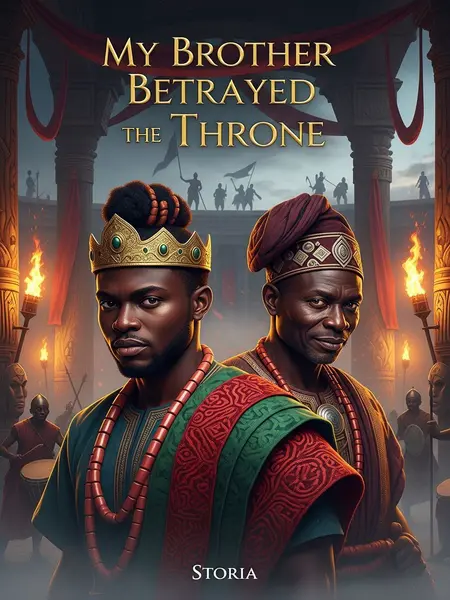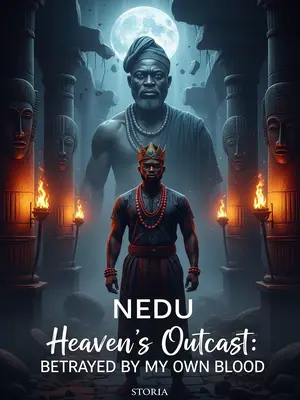Chapter 5: The End of the Old Masquerade?
---
## 4. Only Small Remain Before Death
Back at camp, Adeyemi’s chest was hot with anger. He hated Okechukwu’s tricks more than before, swore to finish Umunna and catch the old fox with his own hand.
He called his chiefs in the dead of night, pounding his staff three times—"I swear by Sango, I go carry Okechukwu head for calabash, or make the gods take my name from the land!" His voice thundered, and even the old men were afraid.
He led fifty thousand Oyo soldiers to the gate of Ajegunle, ready to revenge the ambush.
Drummers led the march, beating the rhythm of war. The whole camp moved as one, a river of resolve flowing towards the enemy. The young men oiled their bodies, the old warriors sharpened their blades. Women sang war songs, promising to name their next sons after Adeyemi.
But before they reached, scouts came to report that Okechukwu had run. After the failed ambush, Okechukwu guessed Adeyemi would come for him—so, “wise man no dey wait make trouble catch am”—he disappeared.
The message came with the cold dawn breeze. Adeyemi spat, furious. The elders nodded wisely, "No be every fight you must fight. Sometimes, to live is to fight another day. No be all lizard wey dey lie down get belly pain."
Okechukwu’s rise as warlord was because he knew tricks: he could endure, act sharp sharp, and he knew how to deceive.
Even children in Umunna now use his name to scare stubborn goats: "If you no sit down, Okechukwu go catch you!"
As Okechukwu ran, things began to favour Adeyemi. From July to September, plenty cities west of Umunna—Oke-Ogun (now Oke-Ogun, Oyo), Ijebu (now Ijebu-Ode), and others—surrendered to Oyo.
The markets of these cities opened their doors, the women ululated, and the chiefs of small towns brought kola nut and salt to pledge their loyalty. The Oyo drums thundered in every village, announcing the rise of a new era.
By mid-September, Umunna was almost alone.
It was like a tortoise without shell—vulnerable, exposed. The market stalls stood empty, only the wind shouting news through the empty streets.
Adeyemi led his army to the old Oba’s palace at Oke Idanre, northwest of Umunna, preparing for siege.
The palace stood like a stubborn mountain, old spirits whispering in the cracks of the walls. Babalawos gathered under the big iroko, consulting their cowries, while warriors sharpened their swords with steady hands.
As defeat loomed, Okechukwu tried to beg for mercy. He himself went to meet Adeyemi for talks across River Olu. Okechukwu began to curse himself, saying he had no sense, that he shouldn’t have fought Adeyemi. He begged Oyo to go back, promising to serve them for life.
He carried palm fronds in his hand, the traditional sign of surrender. The chiefs who came with him did not raise their heads, the shame too much. Some say Okechukwu wept, but the river water hid his tears.
When it was time, Okechukwu knelt and touched his forehead to the ground before Adeyemi, a gesture of humility that made even the warriors pause in silence.
Of course, Adeyemi no gree. In his mind, Okechukwu was just afraid.
He turned to his advisers, laughing, "Masquerade don tire to dance, now e wan rest. But Oyo dance never finish."
But truth showed: Adeyemi was still a young man.
The elders in his camp exchanged worried glances. "Pride go make person forget say ground dey swallow even king, if him no look well."
On September 21, Adeyemi again led five hundred personal guards to check the tomb of Oba Oranmiyan near Umunna—a hilltop where a person could see far.
The morning was clear, the air sharp with harmattan promise. Adeyemi felt the weight of history with every step, his mind wandering to the stories of Oranmiyan and old Oyo glory.
And just like before, before he even saw Umunna’s defence, Okechukwu appeared.
His arrival was like the sudden clap of thunder—no warning, only power. The ground trembled, and even the birds in the trees fell silent.
Last time, Okechukwu sent Ayo the Giant with one thousand men. This time, he came himself, bringing ten thousand soldiers—he was ready to finish it.
Drums beat, dust filled the air, and Okechukwu’s war songs rang out, mocking, daring the Oyo prince to stand his ground.
He even blocked Adeyemi’s road ahead, surrounding him from all sides.
It was a trap woven with care, and as the circle closed, Adeyemi’s heart pounded. The old women at the camp back home began new prayers, their voices mingling with the wind.
Before you could blink, Okechukwu’s ten thousand men had closed in from four sides... The air thick with war, the gods silent, and Adeyemi knew—this was the day legends are truly made.
[To be continued]













